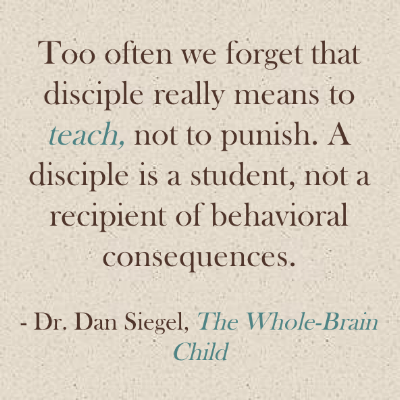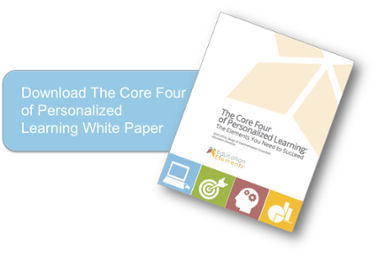
When we work with school districts to embark on a personalized learning journey, we empower students to be self-directed, independent, motivated, and well-versed in articulating and sharing ideas. We encourage students to reflect on their own performance data and collaboratively plan an academic path forward that meets their needs. Yet we don’t build that sort of student agency when it comes to behavior and discipline.
As a former secondary teacher myself, I found that personalized learning best practices, when applied to behavioral challenges, have a significant effect. In particular, examining middle or high school disciplinary culture through a personalized learning lens may encourage a transition away from punitive, zero-tolerance policies that keep the in-school suspension room full. According to the Texas study Breaking Schools’ Rules, students who are suspended and/or expelled are more likely to be held back a grade or to drop out of school. Therefore, disciplinary culture has a profound academic impact. That same study found that nearly 60% of public school students studied were suspended or expelled at least once between seventh and twelfth grade.
How might you harness personalized learning to change your discipline culture? Consider the following strategies to get started:
- Rules: Examine your school rules. Ask yourself, do our rules build student capacity for age-appropriate agency and self-direction? If not, consider redesigning them. Take, for example, these classroom teachers who implemented alternative bathroom pass procedures to empower students to manage their own restroom breaks.
- Replace: Mindfulness and reflection in lieu of suspension or detention is catching on in schools around the country. Offering students strategies, space, and time for processing emotions encourages a reflective practice and builds student self-awareness. Students and teachers in Maryland are seeing the behavioral benefits.
- Restore: Restorative Discipline empowers a school community to engage as active participants in behavioral matters just as we expect them to engage in classroom content. “It brings together persons harmed with persons responsible for harm in a safe and respectful space, promoting dialogue, accountability, and a stronger sense of community.“ This emphasis on student ownership of both behavior and consequence has profoundly impacted Texas elementary and middle schools.
An underpinning of personalized learning is trust. Trust is not easy to give students, whether for academic or behavioral pursuits. However, the only way we can enable learners to be self-directed, motivated, and independent is by empowering and trusting them. Disciplinary policies should philosophically align with a school's approach to student learning, thus sending students consistent messaging about how they are empowered and trusted. The hope is that, through a personalized learning approach that spans academic and behavioral domains, students will develop agency and critical skills that will bring them to success in college, career, and life.





